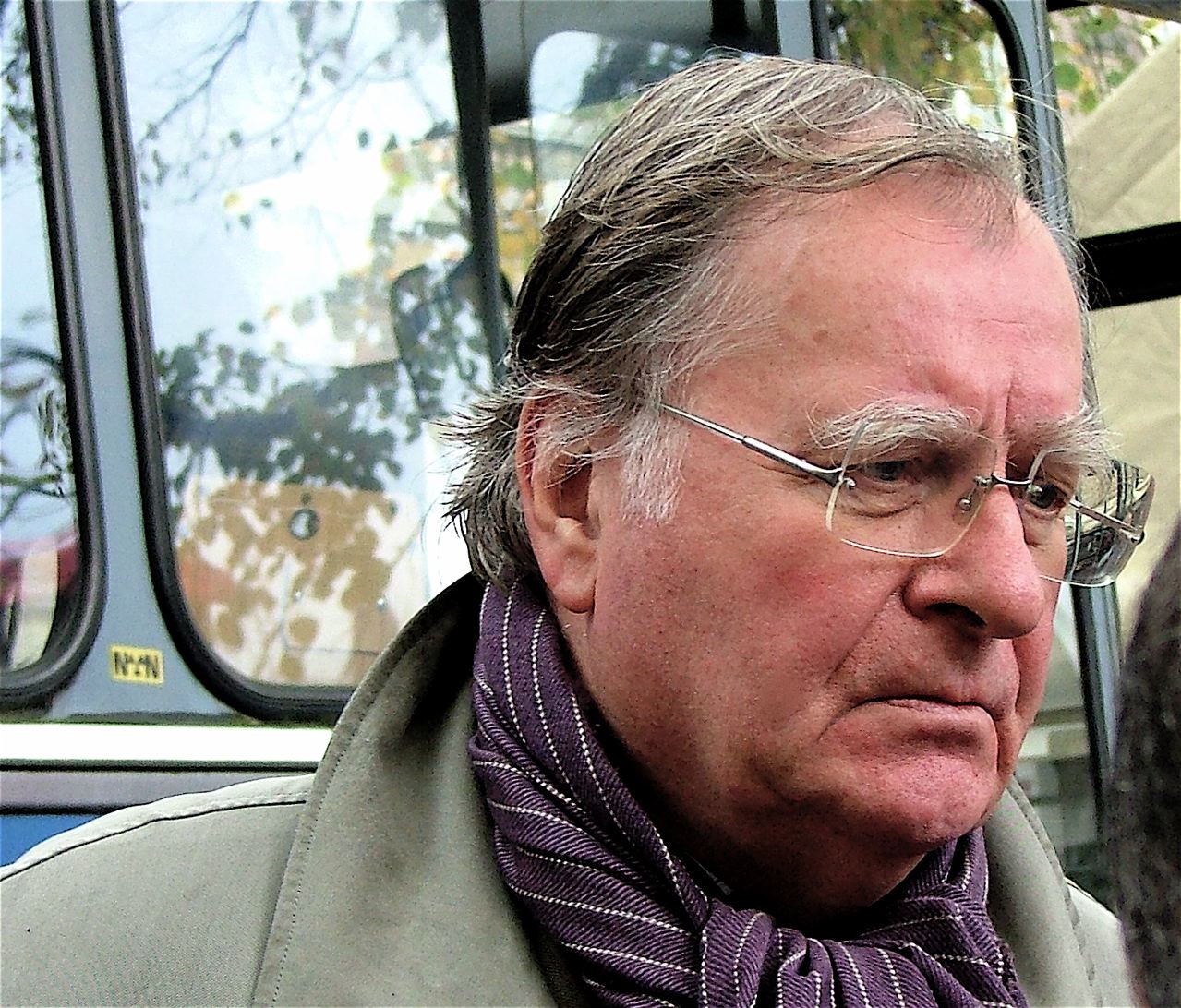- Huub Oosterhuis
Infobox Writer
name = Huub Oosterhuis

birthdate = Birth date and age|1933|11|1|df=y
birthplace =Amsterdam ,The Netherlands
occupation =theologian andpoet
nationality = Dutch
period = 1961-present
genre =Liturgy , religiouspoetry
subject = Bible, socialism
movement =
notableworks = "Liedboek voor de Kerken" (psalms ) (1973)
website =Hubertus Gerardus Josephus Henricus Oosterhuis (
1 November 1933 ,Amsterdam ,The Netherlands ) is a Dutchtheologian andpoet . He is known for his poetry and contribution to liturgy and religious music which are used in both Protestant and Roman Catholic churches. He is the author of over 60 books. [ [http://www.dbnl.org/auteurs/auteur.php?id=oost019 Digital Library for the Dutch literature] Author page Huub Oosterhuis (Retrieved: September 21, 2006)]Biography
Oosterhuis was a Jesuit and a Roman Catholic
priest .In 1954, inspired by
Che Guevara who said that churches have the potential to transform the social structure of society [http://www.sp.nl/nieuws/tribune/200410/interview_huub_oosterhuis.shtml SP.nl Tribune] Interview with Huub Oosterhuis, October 22, 2004. (Retrieved: September 21, 2006)] , Oosterhuis combined his priesthood with political activism.In 1965, Oosterhuis became one of the major supporters of
ecumenism after theSecond Vatican Council . He started out to rewrite the liturgy and make it acceptable to all. Some of his changes were considered controversial within the Roman Catholic Church especially writing the prayer foragnostics : "Heer, als U bestaat, kom dan onder ons" ("Lord, if You exist, come amongst us").His political views, the conflicts regarding the liturgy and his dismissal of
celibacy lead to Oosterhuis being expelled from the Jesuit order in 1969. He started to focus on writing liturgy, religious music, and poetry.Oosterhuis founded the discussion center "De Rode Hoed" ("The Red Hat") in
Amsterdam in 1989. The building was a formerRemonstrant shelter church, which were hidden churches because Remonstrantism (a form of protestantism) was outlawed in 17th century. The building was not being used and he decided to use it for his student organization (1990) and create a discussion center in the building which was frequently used fortelevision shows .It was at De Rode Hoed where
André van der Louw announced his "Social Democratic Renewal Program" which was an incentive to reform the Partij van de Arbeid, the Dutchsocial-democratic political party. Oosterhuis ultimately choose the lesser known Socialist Party as he viewed it closer to socialist ideals. He also opined that:"The Socialist Party is closer to the social ethics of the Bible than many Christian parties." [Interview in "De Telegraaf ", December 21, 2002.]In 2006 elections Oosterhuis stood as final candidate, a symbolic position, for the Socialist Party.
Oosterhuis translated "
Pentateuch " together with Alex van Heusden, which was released in five separate books, as an attempt to translate the first five books of theBible as close to contemporary Dutch as possible without losing the style figures of the originalHebrew text.Huub Oosterhuis is the father of the musicians
Trijntje Oosterhuis andTjeerd Oosterhuis References
Wikimedia Foundation. 2010.
